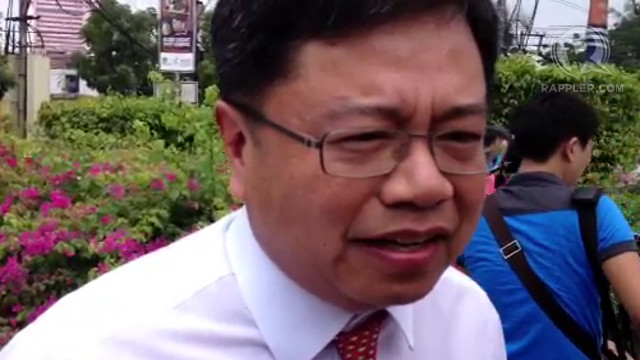SUMMARY
This is AI generated summarization, which may have errors. For context, always refer to the full article.

MANILA, Philippines – Ayala-led Bank of the Philippine Islands (BPI) unveiled a first-of-its-kind solar power system for bank branches meant to cut power cost at the financial retail outlet by about 20%.
At the launch of the first solar-powered branch in Ayala Extension, Makati City on Friday, May 24, BPI president Cezar Consing said this is “one of the many sustainability strategies that the company is planning to pursue over the years.”
The solar power system installed in the bank’s Ayala extension branch consist of solar panels with a 5 kilowatt peak (kWp) capacity. It was installed on April 28 by Solarus Partners, Inc, BPI’s solar panel provider, and has already generated around 408 kWp of energy.
BPI poured over P600,000 into the project and expect to recover this after 7 years.
According to Solarus executive Tetchi Capellan, BPI will get to enjoy 18 years of solar power with very low operations and maintenance costs given that an average life span of a solar panel reaches 25 years.
Consing said the company is planning to put up solar pannels to more branches in the country in the coming years.
“We are planning to duplicate this (technology) in several of our branches. We would also like to do a demonstration on our off-grid branches in Palawan and Boracay,” he said.
More savings, earnings in solar
Solar power usage is not only beneficial for businesses and commercial usage, it can also be good for residential customers, Capellan said.
She said solar power can also be a source of extra earnings through the Renewable Energy Act, allowing commercial and residential units capable of generating power to contribute excess power capacity in exchange for money.
“Under the Renewable Energy Act, small businesses and residential units are allowed to connect to the Meralco grid and whatever is the excess in their generation, they can transport and Meralco will pay them the generation cost of the value of the electricity that is produced,” Capellan said. – Rappler.com
Add a comment
How does this make you feel?





There are no comments yet. Add your comment to start the conversation.